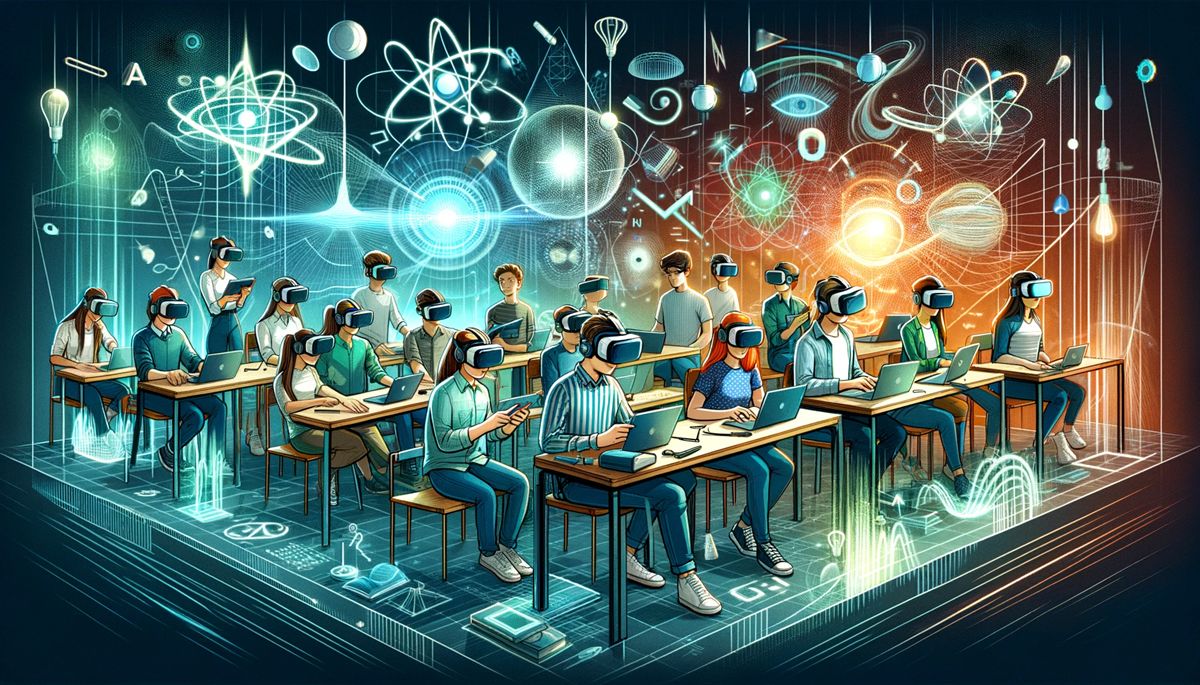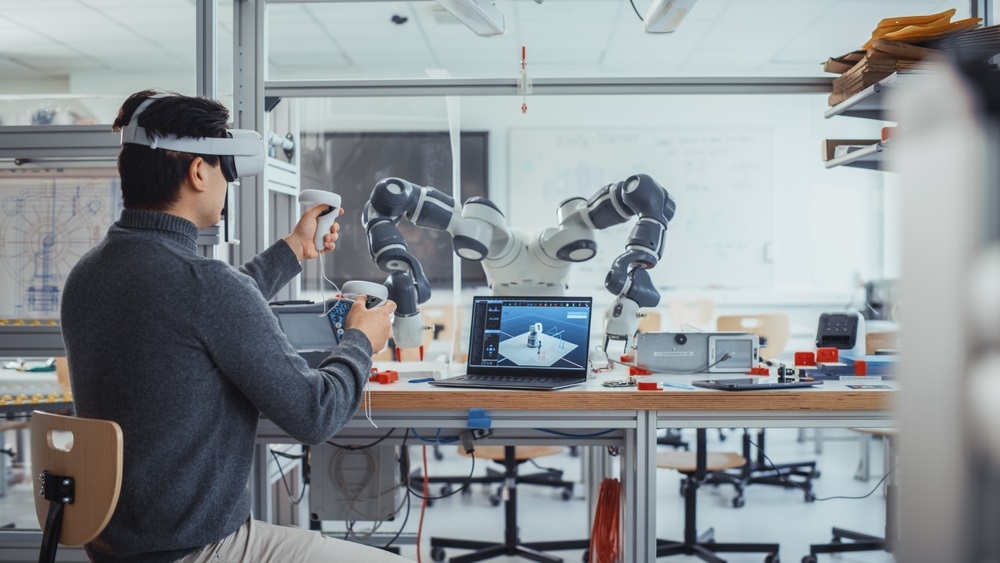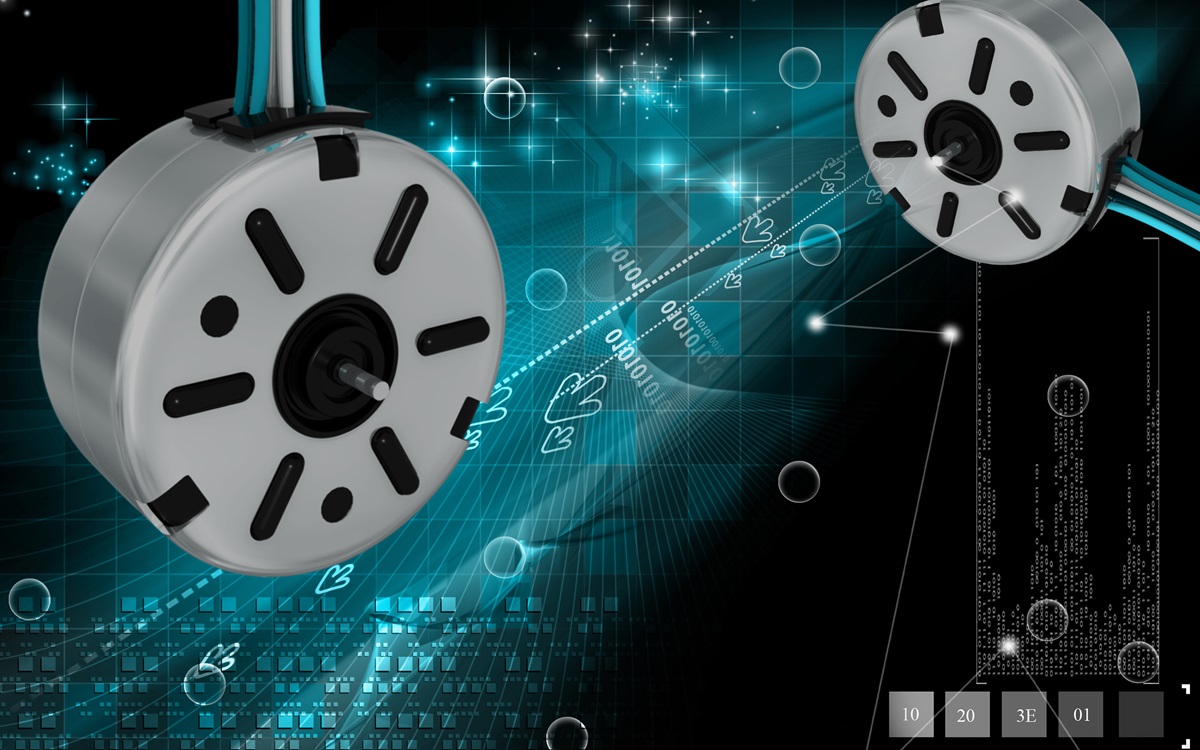Smart Campus: The Future of Higher Education
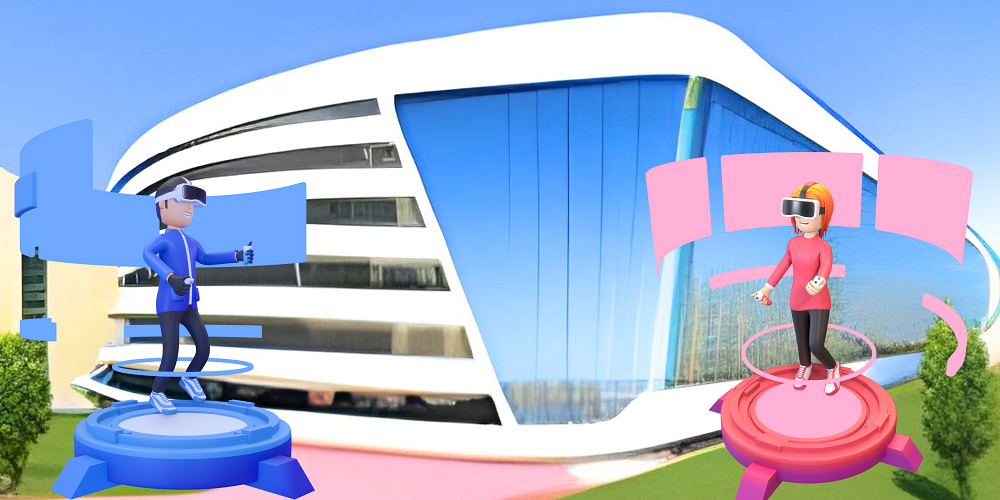
In today's fast-moving tech world, things like cloud computing, virtual reality, and artificial intelligence are making waves.
And guess what? The universities all over the globe are diving right in! More and more institutes are using these cool technologies to make learning more fun and effective for students and staff.
Think about a campus that works like a mini smart city, where everything is connected and efficient. This is what we call a 'Smart Campus.'
However, there is currently a limited understanding of how the smart campus is conceptualized and practiced.
So, what does a Smart Campus really mean? How does it work? And why should we care?
In this blog, we'll break it all down in simple terms. Let's explore the exciting world of Smart Campuses and how they're changing the way we learn.
What is a Smart Campus?
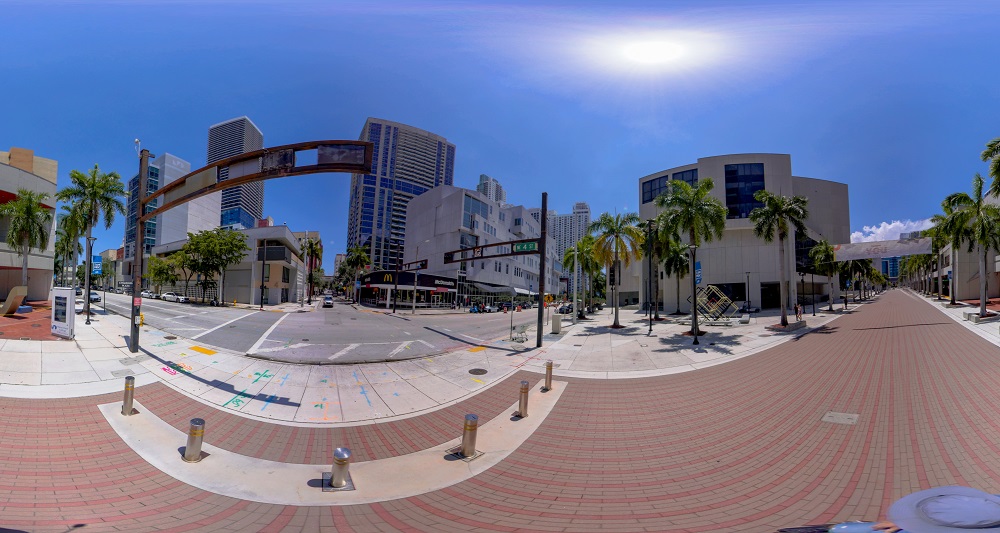
Amidst the hum of higher education technology trends, the transition to Smart Campuses stands out. The evolution of technology in education has expanded beyond the confines of e-learning platforms and virtual campuses.
Universities globally are now focusing on harnessing smart campus solutions to provide an enhanced, efficient, and holistic educational experience.
But, what is Smart Campus?
To answer, picture a campus that’s alive, responsive, and interconnected. That's what a Smart Campus embodies. It’s where the traditional boundaries of brick and mortar are stretched and reshaped by technology.
At its essence, a Smart Campus seamlessly blends infrastructure, technology, and academic processes to function in perfect harmony.
In a Smart Campus, technology is not an afterthought, it’s embedded into its DNA.
Every aspect, from the classroom setups to the back-end administrative functions, is optimized using tech solutions.
Instead of manual roll calls, imagine biometric systems automatically marking student attendance. Instead of static library resources, visualize AR for the library, augmenting the experience of browsing and research.
If the idea of attending a lecture in a virtual reality lab excites you, where you're not just seeing content but living it, you're tapping into the ethos of a Smart Campus.
It is this very fusion of reality with advanced tech solutions that elevates a Smart Campus from its traditional counterparts, pushing the boundaries of what's possible in higher education.
Examples of Smart Campus Technologies
The future of higher education is not just about updated syllabi or new teaching methodologies. It's about integrating innovative technologies that transform the traditional campus into an interactive, efficient, and safe learning environment.
Here are some cutting-edge Smart Campus technologies making waves:
IoT in Campus Infrastructure
The heart of modern campuses beats with the pulse of the Internet of Things (IoT).
Picture entering a lecture hall, where instead of a static ambiance, the room dynamically adjusts according to its inhabitants.
With Smart Campus innovations rooted in IoT, elements like lighting, temperature, and sound systems evolve in real time, tailoring themselves based on the number of attendees. This ensures optimal learning conditions for students, regardless of the class size.
Beyond that, the traditional classroom rituals are being revamped. The era of manual roll calls and attendance sheets is being overshadowed.
Today, state-of-the-art biometric devices and facial recognition technologies hold the reins. With a simple scan, attendance is captured both accurately and promptly, paving the way for more time to engage in meaningful academic discussions.
The influence of IoT in reshaping campus infrastructure is undeniable, making campuses smarter and more efficient than ever.
Virtual and Augmented Reality in Classrooms
Stepping into the modern classroom, one can't help but notice the captivating allure of Virtual and Augmented Reality (VR & AR) tools reshaping the educational landscape.
Virtual Reality
When it comes to virtual reality for higher education, it's about moving from mere observation to immersion. No longer are students confined to textual descriptions or static images of, say, ancient civilizations.
Instead, they can don the VR headset and traverse the bygone alleyways of ancient cities or stand atop pyramids, all within the confines of a virtual reality lab.
This immersive approach elevates the learning experience, making lessons memorable and impactful.
Augmented Reality
AR brings an extra dimension to learning. Complex subjects, which often require layers of visualization, are transformed. Diagrams leap out of the pages, and written notes evolve into dynamic 3D models.
Whether it's a molecular structure or an intricate machine component, students can interact with and explore these models in real time, fostering a deeper understanding.
AI-driven Learning Management Systems
The future of education is not just digital, but intelligent. At the forefront of this evolution are AI-driven Learning Management Systems (LMS).
At its core, an AI-powered LMS is designed to understand and cater to individual learners. By analyzing a student's interaction with content, engagement metrics, and assessment results, these platforms can decode each student's unique learning style, strengths, and areas that may need bolstering.
It's not about a one-size-fits-all approach, it's about crafting a personalized academic pathway that resonates with every learner's pace and preference.
But the marvel of AI doesn't stop at mere analysis. It takes a step further into prediction. These systems can forecast potential hurdles a student may encounter in their academic journey.
By doing so, they provide educators with a proactive lens. Instead of reacting to a student's struggle, educators can preemptively introduce interventions, whether it's additional resources, tutoring, or alternative teaching methods, ensuring that each student stays on track.
Smart Libraries
The concept of libraries is undergoing a transformative evolution, with Smart Libraries heralding a new age of knowledge acquisition-
● Efficient Systems: Forget long queues for book checkouts. With automated systems, borrowing becomes a breeze.
● Digital Expansion: Alongside physical books, students have access to vast digital archives and cloud-based resources, ensuring they always have the necessary materials at their fingertips.
● AR-enhanced Research: With AR for library, students can get quick summaries, related research papers, or even video explanations by simply scanning a book's barcode.
Connected Campus Safety
In the domain of Cmapus security, the shift from reactive to proactive measures is evident. Central to this transformation is the integration of advanced technologies that prioritize the safety and well-being of every individual. Here's how:
● Smart Surveillance: Traditional security cameras only record. Smart cameras, however, analyze footage in real time, identifying potential security threats.
● Rapid Response: Integration with emergency systems ensures that any potential security breach is immediately communicated to the necessary responders, guaranteeing student safety.
Applications of Smart Campus
The marvels of the Next-Generation Campus aren't just confined to their advanced technologies. It's in the vast scope of their applications, reshaping the very fabric of the educational landscape, that their true essence shines through. Here's a closer look:
Enhanced Student Engagement
Gone are the days of the monotonous one-way teaching models. Smart Campuses incorporate immersive technologies in college, turning learning into an exciting journey.
A Smart Campus infuses gamified learning techniques, fostering a competitive yet collaborative learning atmosphere where students are eager participants.
With the introduction of Gamification into education, not only do the concepts become engaging but it also improves retention rate among students.
Efficient Campus Management
Smart sensors and analytics predict when facilities, from labs and lecture halls, might require maintenance in a traditional setup. In contrast to this, the Smart Campus technology minimizes downtime and disruptions.
Along with this, it optimizes resource utilization. By continuously monitoring resource use, from classroom occupancy to energy consumption, Smart Campuses allocate resources where they are most needed, ensuring operational efficiency.
Holistic Safety and Security
In conventional educational institutions, safety remains a predominant concern.
Smart Campuses employ data-driven security mechanisms that proactively detect and mitigate potential threats, fostering a more secure ambiance for all.
During emergencies, cohesive communication networks ensure that students, faculty, and security teams are immediately notified, facilitating rapid responses.
Research and Innovation
Research and innovation are undergoing a monumental shift thanks to Smart Campuses. Equipped with cutting-edge technological resources and software, researchers are empowered to probe further into their fields of interest.
This capability paves the way for groundbreaking discoveries that previously seemed elusive.
Moreover, the integration of digital collaboration platforms on Smart Campuses amplifies the power of interdisciplinary research.
It seamlessly bridges the gap between different academic disciplines, allowing for the convergence of bright minds from varied sectors.
This synergy not only sparks novel ideas but also fosters a holistic approach to addressing complex research questions.
Sustainable Initiatives
Smart Campuses are taking the lead towards a more eco-friendly future. Through the implementation of smart lighting solutions that adapt according to natural daylight and room occupancy, there's a marked reduction in superfluous energy consumption.
But sustainability doesn't stop there.
Pioneering recycling technologies on these campuses have the capacity to discern and segregate waste with heightened precision.
This proactive waste management not only streamlines the recycling process but also propels campuses forward in their pursuit of sustainability milestones.
The amalgamation of these innovative initiatives underscores the commitment of Smart Campuses to creating a more sustainable and responsible academic environment.
Why a Smart Campus?
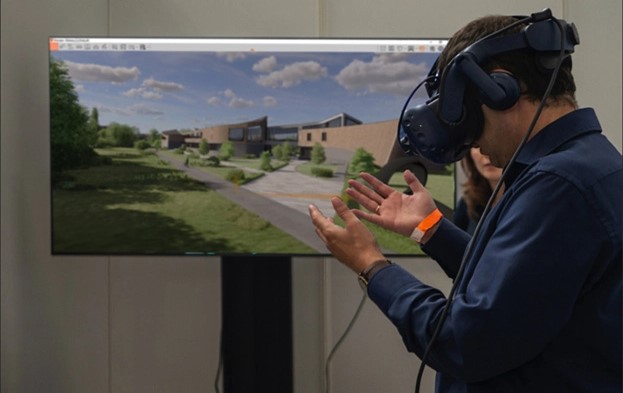
Embracing a Smart Campus is not merely about staying current with technological advancements.
It's a strategic decision aimed at holistic development.
A Smart Campus transforms learning into a tailored, interactive experience, thanks to AI and immersive technologies.
Operational efficiency is another key advantage. Smart systems streamline resource allocation and maintenance, saving both time and money. In terms of safety, real-time surveillance and rapid response systems offer a more secure environment.
Sustainability efforts are also bolstered through energy-saving and waste-management technologies.
In short, a Smart Campus is a strategic investment for any educational institution, delivering benefits in learning outcomes, operational efficiency, safety, and sustainability.
Wrapping up
As we journey through the digital age, higher education must evolve not just to keep pace, but to lead and redefine the learning experience.
Colleges and universities that embrace this innovative approach position themselves at the forefront of academic excellence, offering an enriched, efficient, and holistic learning environment.
As pioneers in crafting immersive educational experiences, iXR Labs understand the intricate nuances and potential of Smart Campus technologies.
If you want to know more about Smart Campuses or extended reality in higher education, you can visit www.ixrlabs.com
